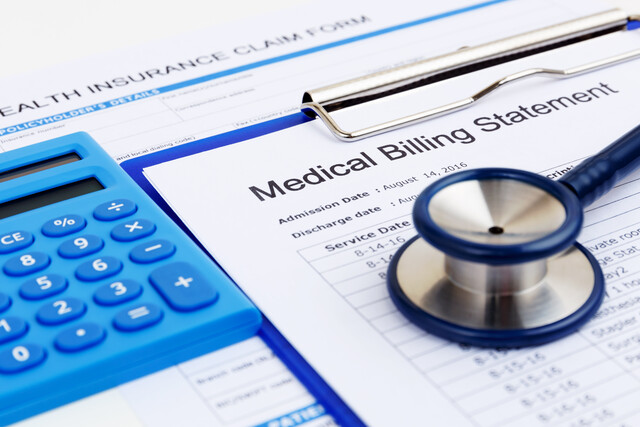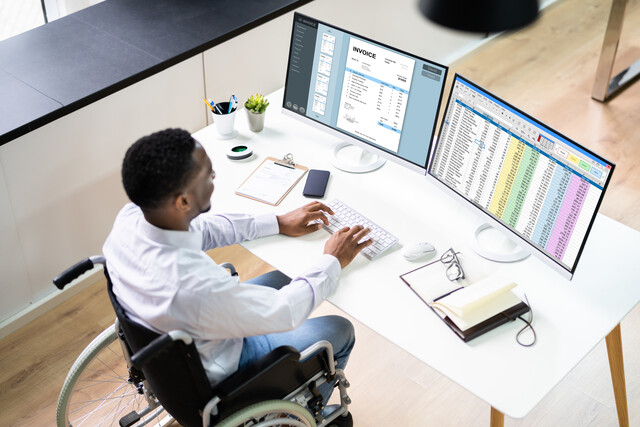Online Class: Medical Office Management

no certificate
with CEU Certificate*
-
20Lessons
-
28Exams &
Assignments -
1,926Students
have taken this course -
8Hours
average time -
0.8CEUs
Course Description
Mastering Medical Office Management: Redefining Excellence in Healthcare Administration
Imagine a career where every decision you make improves lives, streamlines processes, and transforms patient experiences. Managing a medical office isn't just about keeping the wheels turning-it's about creating an environment where healthcare professionals thrive, patients feel valued, and operations run seamlessly. If you've ever envisioned yourself at the helm of a medical office, orchestrating its success with confidence and expertise, this is the course that will make it a reality.
Mastering Medical Office Management isn't just another online class; it's a transformative journey. This course is designed for those who dare to dream bigger-whether you're starting your career, stepping into a leadership role, or revitalizing an established practice. It's your opportunity to rise above the competition and position yourself as an indispensable leader in healthcare management.
What sets this course apart is its holistic approach. We understand that managing a medical office isn't just about logistics-it's about people, innovation, and impact. That's why we've woven together the essential skills you need with practical, real-world strategies. From mastering the art of patient-centered care to navigating the complexities of billing and compliance, you'll emerge with the confidence to handle every challenge with finesse.
But this course doesn't stop at skill-building-it's about transformation. Imagine yourself leading a medical office that operates like a well-oiled machine, where every patient interaction feels personal and every team member is motivated to excel. Picture yourself as the go-to expert who not only understands the intricacies of medical coding and record management but also knows how to inspire a team, streamline workflows, and elevate the patient experience. This course gives you the tools to turn that vision into reality.
Throughout this journey, you'll gain insider knowledge that goes beyond the basics. You'll learn how to harness technology to improve efficiency, manage emergencies with precision, and maintain an ethical, patient-focused practice. By the end, you won't just be prepared-you'll be unstoppable.
Your future in medical office management starts here. Don't settle for average when you can achieve extraordinary. Enroll today and take the first step toward building a career that's as rewarding as it is impactful. Your transformation starts now.
- Completely Online
- Self-Paced
- Printable Lessons
- Full HD Video

- 6 Months to Complete
- 24/7 Availability
- Start Anytime
- PC & Mac Compatible
- Android & iOS Friendly
- Accredited CEUs

Course Lessons
Lesson 1. Medical Offices: A Brief History
From their origins in home visits, medical offices have adapted to urban demand, offering diverse services in one place, thus revolutionizing care accessibility. Modern advancements like EHRs and telemedicine improve efficiency and patient experiences in these facilities.Lesson 2. Journey Through Specialized Healthcare: Where Expertise Meets Environment
Audiologists and chiropractors embody the specialized care provided within medical offices, leveraging unique resources like soundproof rooms and ergonomic design to enhance hearing health and neuromuscular well-being. The profound impact of their tailored services is evident in the prevention and management of common issues like hearing loss and back pain, crucial for improving quality of life.Lesson 3. Frontline Heroes: Key Roles in Healthcare
Nurse practitioners, blending deep clinical expertise with administrative acumen, act as crucial links between doctors and patients, providing diagnosis and treatment in fast-paced settings. Their autonomous practice enhances flexibility and accessibility in healthcare services.Lesson 4. Streamlined Practices: Effective Management in Healthcare Settings
Strategically navigating staff and patient dynamics, the office manager ensures seamless interactions with insurance companies and efficient appointment scheduling. By implementing proactive inventory management and upholding medical standards, a well-organized medical office flourishes under thoughtful leadership.Lesson 5. Revolutionize Patient Flow with Digital Scheduling
Advanced scheduling systems in healthcare redefine patient interactions by offering nuanced features like flexible rescheduling, comprehensive patient profiles, and automated communication. This digital transition signifies not just operational improvement but a commitment to enhancing patient experiences and healthcare quality.Lesson 6. Telemedicine and Telecommunication: Bridging Patients and Providers
The integration of telecommunications in healthcare evolves with digital trends, yet the telephone remains an indispensable patient communication tool. Effective systems require empathy and structure, ensuring each patient call supports their next healthcare steps.Lesson 7. Efficient Healthcare Scheduling
Effective patient schedule management involves strategic time allocation for diverse appointment types, enhancing patient care. This strategic approach ensures balance between operational efficiency and individualized patient attention.Lesson 8. Empathy and Understanding in Healthcare
Patient education is pivotal in empowering individuals to make informed decisions about their health, with tools like workshops and customized materials improving health literacy and engagement. By understanding medical advice within the context of their daily lives, patients adopt healthier practices that lead to better outcomes.Lesson 9. Triage: Understanding and Mastering Patient Priority
Central to triage is patient assessment through strategic questioning covering demographics, symptoms, and medical history to categorize urgency, often handled by staff ranging from desk clerks to nurses based on clinic needs. Technological innovations such as virtual triage tools are also enhancing decision-making efficiency, reflecting an evolving healthcare landscape.Lesson 10. Swift Responses: Managing Office Emergencies
The nuanced handling of medical emergencies encompasses rapid medical intervention techniques and maintaining a calm atmosphere to reassure patients. Incorporating AEDs and CPR training into regular staff education ensures readiness and effective patient support during crises.Lesson 11. Efficient Medical Office Upkeep
A well-organized and clean medical office fosters patient trust by ensuring a professional environment committed to healthcare excellence. Key areas include efficient front desk operations, secure medical records management, and sanitized exam rooms.Lesson 12. Optimizing Financial Operations for Medical Practices: Exploring Billing Strategies
Comprehensive financial oversight and strategic billing practices in medical offices lead to sustainable growth and increased patient loyalty. The fusion of technology in billing processes minimizes errors and allows health professionals to prioritize patient care.Lesson 13. Navigating Medical Terminology: A Journey into Healthcare Language
CPT codes act as a universal healthcare language, facilitating streamlined documentation and accurate insurance claims. These codes, maintained by the American Medical Association, are crucial for ensuring clear communication and efficient billing across medical services worldwide.Lesson 14. Decoding Healthcare: The Significance of Medical Coding
In medical practices, accurate coding reduces the risk of denied claims and helps avoid revenue losses, enhancing overall operational efficiency. Coders must stay updated on coding regulations and guidelines, ensuring timely and compliant submissions that facilitate patient care.Lesson 15. Precision in Patient Records: The Vital Role of Medical Transcription
As healthcare evolves towards digital integration, medical transcription grows in significance, aiding virtual consultations and streamlining administrative tasks. By leveraging cutting-edge technology alongside human oversight, transcription services enhance the delivery of healthcare, ensuring precise communication and comprehensive patient records.Lesson 16. Navigating the Evolution of Medical Records from Paper to Digital
Strategically chosen medical record management software can enhance operational efficiency by integrating diagnostic tools and securing patient data, vital for seamless healthcare delivery. Patients gain empowerment through improved access to records, while telemedicine bridges healthcare gaps in remote areas.Lesson 17. Building Trust: The Intersection of Privacy and Ethics in Healthcare
In healthcare, patient trust is built on stringent privacy practices mandated by laws like HIPAA, ensuring only those directly involved in a patient's care have access to their medical data. These protocols protect patient dignity by preventing unauthorized disclosure, thus maintaining confidentiality amidst advancing digital record-keeping.Lesson 18. Fostering Trust through Ethical Healthcare Practices
Beneficence is highlighted through scenarios involving asthma management and depression in adolescents, focusing on providing the best care possible. The lesson underscores the importance of a multidisciplinary approach in addressing complex medical conditions for the patient's benefit.Lesson 19. Transforming Patient Experience with Advanced Diagnostic Tools
Streamlined diagnostics and effective communication in medical care form the backbone of a patient-centered healthcare experience, ensuring that no information is lost between practitioners, testing facilities, and patients. Technologies like telehealth and AI-based diagnostics help break geographical barriers and enable timely interventions, leading to improved health outcomes.Lesson 20. Mastering the Modern Medical Office: An Education Guide
To excel in healthcare settings, medical office education combines formal learning, practical experience, and continuous training, fostering an adaptable and confident team. Diverse educational opportunities, such as online courses and certifications, help staff apply their skills in real-world contexts, improving operations and patient satisfaction.
Learning Outcomes
- Define the historical shifts in healthcare delivery that led to the development of medical offices from the era of home visits.
- Identify how specialization and technological advancements in modern medical offices improve patient outcomes and healthcare efficiency.
- Define the unique characteristics of a medical office environment that optimally supports a specific healthcare specialty, such as audiology or chiropractic care.
- Demonstrate an understanding of the unique environmental needs required for optimizing patient care in different medical office specialties.
- Identify how the characteristics of specific healthcare specialties influence their preferred medical office setups and resources.
- Identify the essential resources and tools required in a pediatric office to facilitate effective healthcare services for children from birth through adolescence.
- Analyze and explain how effective collaboration among medical office staff enhances the efficiency and quality of patient care delivery and patient experience.
- Define the key responsibilities of registration clerks in managing patient interactions and office operations, focusing on communication skills and information accuracy.
- Demonstrate the ability to identify and describe the distinct roles of medical office staff, such as registration clerks, medical assistants, and nurses, and their contributions to patient care.
- Demonstrate the ability to perform basic triage as a medical assistant, assessing patient needs quickly and accurately to facilitate appropriate scheduling and prioritization of care.
- Define systematic procedures for inventory management to ensure continuous availability of essential medical supplies and prevent service disruptions.
- Demonstrate effective strategies for managing staff performance and development to maintain a motivated and skilled medical team.
- Define the key features of scheduling software in healthcare, including customized physician schedules and comprehensive patient profiles, to enhance operational efficiency.
- Demonstrate mastery of lesson content at levels of 70% or higher.
Additional Course Information

- Document Your Lifelong Learning Achievements
- Earn an Official Certificate Documenting Course Hours and CEUs
- Verify Your Certificate with a Unique Serial Number Online
- View and Share Your Certificate Online or Download/Print as PDF
- Display Your Certificate on Your Resume and Promote Your Achievements Using Social Media

Choose Your Subscription Plan
No Certificate / No CEUs
This course only
| Includes certificate | X |
| Includes CEUs | X |
| Self-paced |

|
| Instructor support |

|
| Time to complete | 6 months |
| No. of courses | 1 course |
Certificate & CEUs
This course only
| Includes certificate |

|
| Includes CEUs |

|
| Self-paced |

|
| Instructor support |

|
| Time to complete | 6 months |
| No. of courses | 1 course |
Certificates & CEUs
Includes all 600+ courses
| Includes certificate |

|
| Includes CEUs |

|
| Self-paced |

|
| Instructor support |

|
| Time to complete | 12 Months |
| No. of courses | 600+ |
Certificates & CEUs
Includes all 600+ courses
| Includes certificate |

|
| Includes CEUs |

|
| Self-paced |

|
| Instructor support |

|
| Time to complete | 24 Months |
| No. of courses | 600+ |
Student Testimonials
- "The course has been very helpful. I had worked in the medical field for over 10 years and I wish I'd known about this program or if they had one when I was working in the hospital years ago. Thank you for your time and knowledge." -- Bertha G.
- "I enjoyed taking this course! I was not familiar with medical office administration and this course gave me a great overview of how to run the office. Also, it gave me some general knowledge regarding billing and coding as well as other categories to purse in the medical field." -- Vera P.
- "I really enjoyed reading learning and comprehending the material that I read. I would recommend this class to my friends. In addition the instructor graded my lesson in a timely fashion. I want to thank her for helping me with this course." -- Wilhelmina P.
- "My instructor was positive and motivating. I took this course as a "refresher". I have many years of experience in the medical office field." -- Lisala A.
Related Courses
-
 74 hours
7.4 CEUs
Medical Billing and Coding Course Bundle
+ More Info
74 hours
7.4 CEUs
Medical Billing and Coding Course Bundle
+ More Info
-
 2 hours
0.2 CEUs
Careers in Healthcare
+ More Info
2 hours
0.2 CEUs
Careers in Healthcare
+ More Info
-
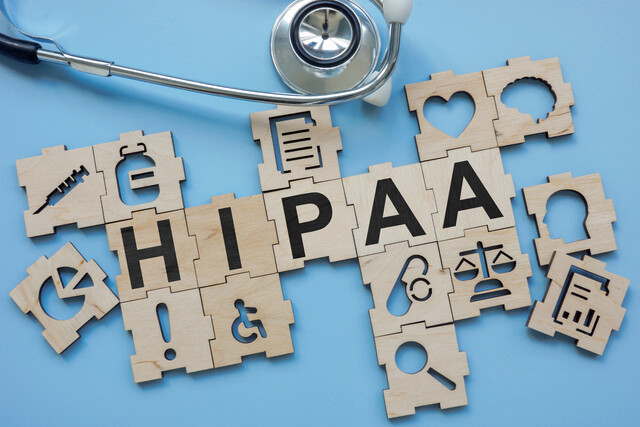 6 hours
0.6 CEUs
HIPAA Compliance 101
+ More Info
6 hours
0.6 CEUs
HIPAA Compliance 101
+ More Info
-
 17 hours
1.7 CEUs
ICD-10: Medical Coding
+ More Info
17 hours
1.7 CEUs
ICD-10: Medical Coding
+ More Info
-
 22 hours
2.2 CEUs
Anatomy and Physiology 101
+ More Info
22 hours
2.2 CEUs
Anatomy and Physiology 101
+ More Info
-
 7 hours
0.7 CEUs
Caring for Seniors
+ More Info
7 hours
0.7 CEUs
Caring for Seniors
+ More Info
-
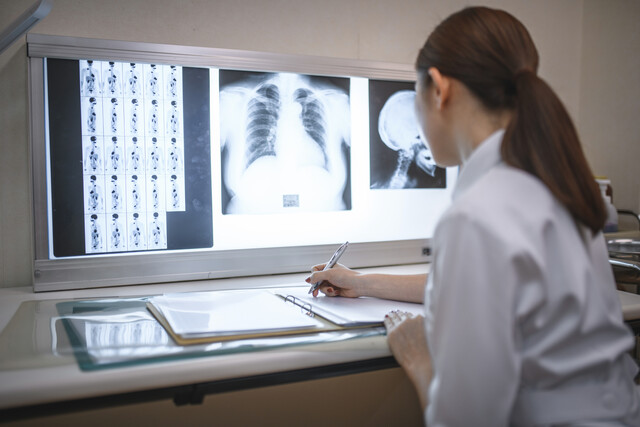 33 hours
3.3 CEUs
Comprehensive Medical Terminology 1 & 2
+ More Info
33 hours
3.3 CEUs
Comprehensive Medical Terminology 1 & 2
+ More Info
-
 7 hours
0.7 CEUs
Understanding Concussions
+ More Info
7 hours
0.7 CEUs
Understanding Concussions
+ More Info
-
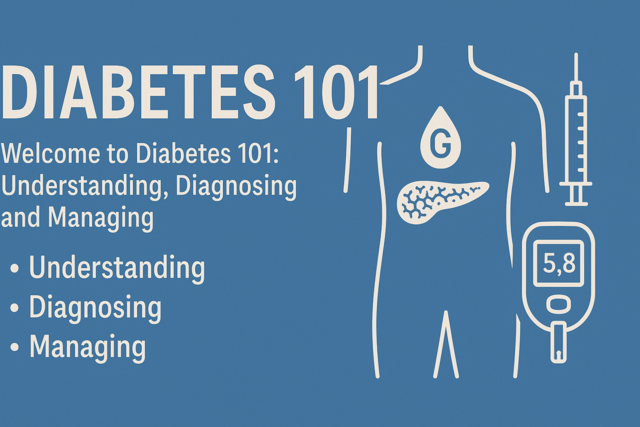 4 hours
0.4 CEUs
Diabetes 101
+ More Info
4 hours
0.4 CEUs
Diabetes 101
+ More Info
-
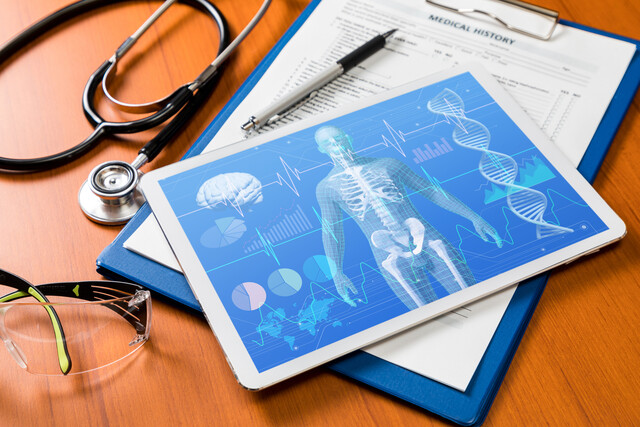 17 hours
1.7 CEUs
Medical Terminology 201
+ More Info
17 hours
1.7 CEUs
Medical Terminology 201
+ More Info


